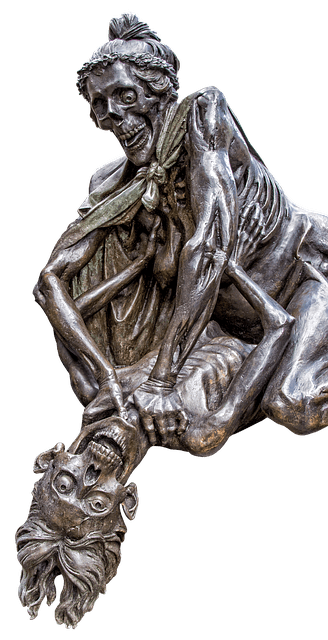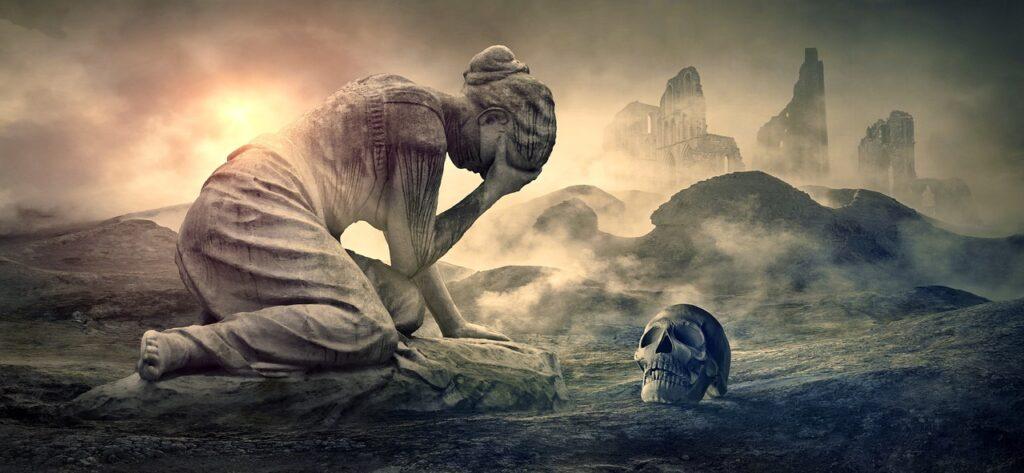
The fear of death is inherent in human nature. This fear arises from our natural aversion to the unknown, as death is an experience we have never encountered in our current lifetime. When we face death, we lose our sense of identity, possessions, relationships, skills, desires, and much more. We all understand that death is inevitable and inescapable. However, should we truly be afraid of it?
Death should not be seen as an enemy; it is a natural part of life, a stage in our existence, and a transition to another plane of reality. For someone suffering from a disease, death can bring release from the burden of a diseased body. Ancient scriptures explain that death provides an opportunity for living beings to escape the material world and the cycle of birth and death. Being afraid of death is like being afraid to let go of an old and worn-out garment. The best approach is to focus our consciousness on reaching the highest realm possible after death. While it may be a little sad to leave our home and loved ones, if we are moving to a bigger and more beautiful home, there is nothing to feel sorry about. It is a joyful experience to be going to a better place. This kind of joy also helps to divert our attention from any pain we may be experiencing.
Death is the transformative process through which the soul separates from the physical body. While the body, composed of perishable matter, is subject to birth, disease, old age, and ultimately death, the soul is eternal and imperishable, existing in an everlasting state. All living beings possess an eternal essence known as the soul, which becomes entangled within material bodies. It is the soul that gives rise to consciousness in living entities, and according to scriptures, life is not merely the result of chemical reactions but rather the presence of the soul within a body that animates it. Unlike the temporary and ever-changing physical body, the soul remains unchanging and eternal, devoid of any beginning or end. Death leads to the destruction of the physical body, but the soul continues to exist eternally.
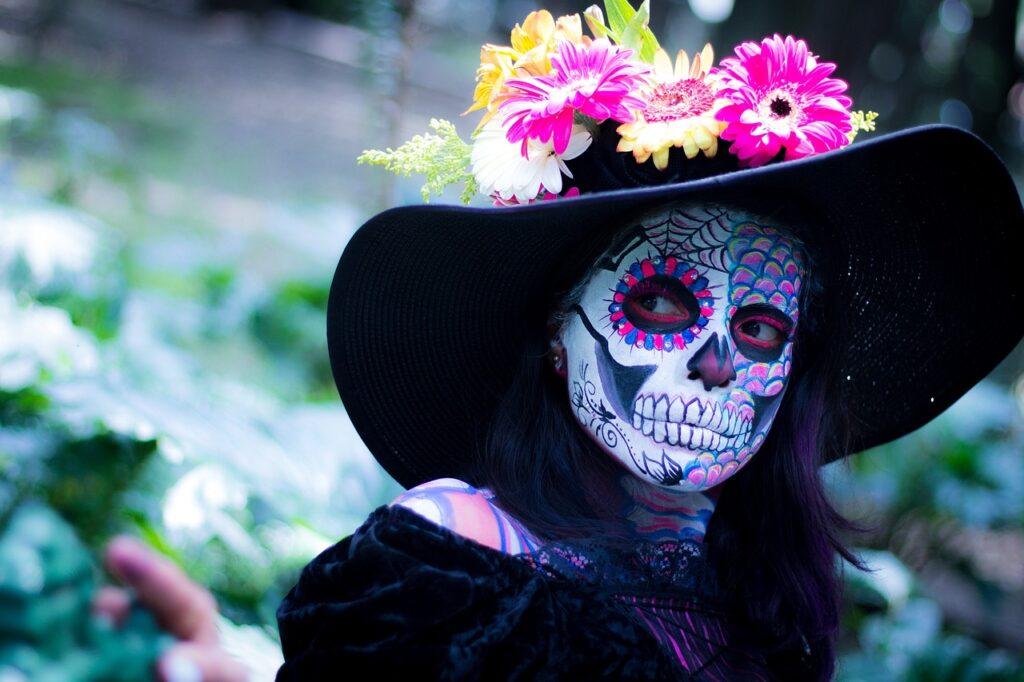
Life is often described as a preparation, while death is likened to an examination. During the process of dying, a person’s entire life and memories appear before them as a flashback. The Bhagavad Gita states that the consciousness a person possesses at the time of death determines their next destination. Furthermore, a person’s consciousness during this time is influenced by their past karma, attachments, desires, and so on. Hence, a person’s nature plays a significant role in determining their next birth. However, if a dying person successfully remembers or calls out to the Supreme Lord, they are immediately relieved from the cycle of birth and death and return to their original home, the spiritual world.
yanti deva vrata devan
pitrn yanti pitr vratah
bhutani yanti bhutejya
yanti mad yajino ‘pi mam
(Bhagavad Gita 9.25)
–
Those who offer worship to the demigods will be reborn among them, those who venerate ghosts and spirits will find themselves among such entities, those who honor their ancestors will join them in the afterlife, and those who worship Me will dwell in My divine presence.
The primary fear associated with death is the uncertainty of what awaits us in the afterlife. If you are afraid of where you might go after death, surrender yourself and trust that fate or a higher power will place you where you can learn whatever you need to learn. The universe is governed by compassion. Our presence here is not a punishment but a result of our desires for the experience of material existence and bodily pleasures. Each life is meant for us to learn more about ourselves and our true nature. Death is not merely a matter of growing old or falling ill; natural death occurs when we have fulfilled our purpose in this life. Whether or not we desired to do more, when we have accomplished what we were meant to do, we move on. Nature arranges for us to depart from this realm. Each life is like a classroom where we learn a certain amount and undergo a specific number of lessons or tests. Then, we graduate to the next class. We can choose to learn willingly or unwillingly, to cooperate or be uncooperative. We can keep repeating the same lessons until we learn what is necessary to progress to the next level. The choice is ours. And if we have failed any of the tests, there is no need to worry. We will have the opportunity to try again. Therefore, let go of any fear and trust that a higher power will place you where you can make the most progress.
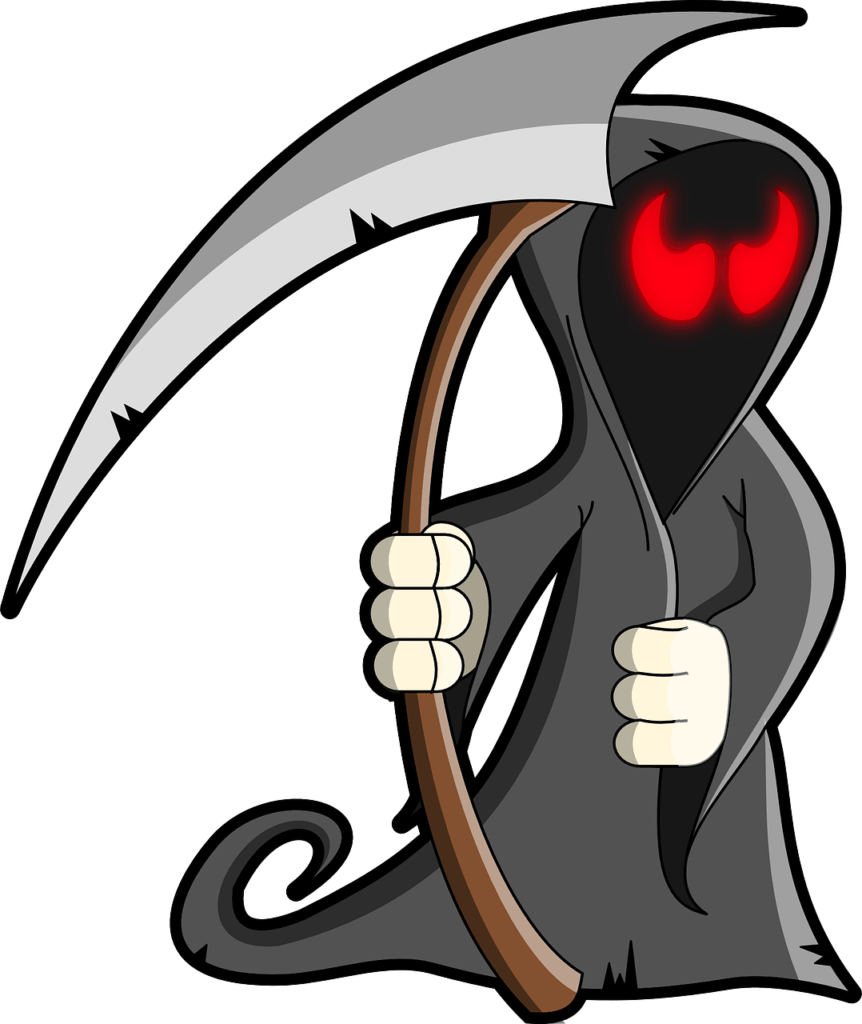
Therefore, death should not be perceived as an adversary; rather, it can be likened to a dear friend who liberates us from the chains that anchor us, preventing us from exploring greater horizons. Embracing death brings us closer to attaining freedom from the limitations of the earthly plane, the influence of the senses, the servitude to the body, and the impressions engraved in the mind. In the Bhagavad Gita, Krishna affirms, “Never was there a time when I (the Supreme Being) did not exist, nor you… nor in the future shall any of us cease to be.” Hence, there is no reason for anyone to lament the departure of the immortal soul from the physical body.
Death’s Liberating Embrace: Indra’s Salvation and Spiritual Reawakening
Once upon a time, Indra, the illustrious king of the heavenly realm, made a grave error that led to a curse from the sage Narada. As a result, Indra was destined to be reborn on the earthly plane as a humble hog. Accepting his fate, Indra embraced his new life and began dwelling on Earth. With the passage of time, he grew, formed marital bonds, and became a proud father to a multitude of piglets. He even assumed leadership of the hog community, finding immense joy in the company of his friends and loved ones.
However, as the duration of Indra’s curse approached its end, a perplexing situation unfolded in the celestial abode. Indra, contrary to expectations, showed no inclination to return to his heavenly throne. The prolonged absence of a ruler in the heavenly kingdom necessitated urgent action. In light of this, Narada personally resolved to bring Indra back to his rightful place.
Arriving on Earth, Narada witnessed Indra relishing his life as a hog—engaging in playful activities with his wife and piglets, indulging in jovial banter with his companions, and even finding contentment in the most mundane of things, such as wallowing in mud. Overwhelmed by compassion for the fallen king, Narada approached Indra and reminded him of his exalted position in the heavenly realm. However, to Narada’s astonishment, Indra remained unmoved by his words.
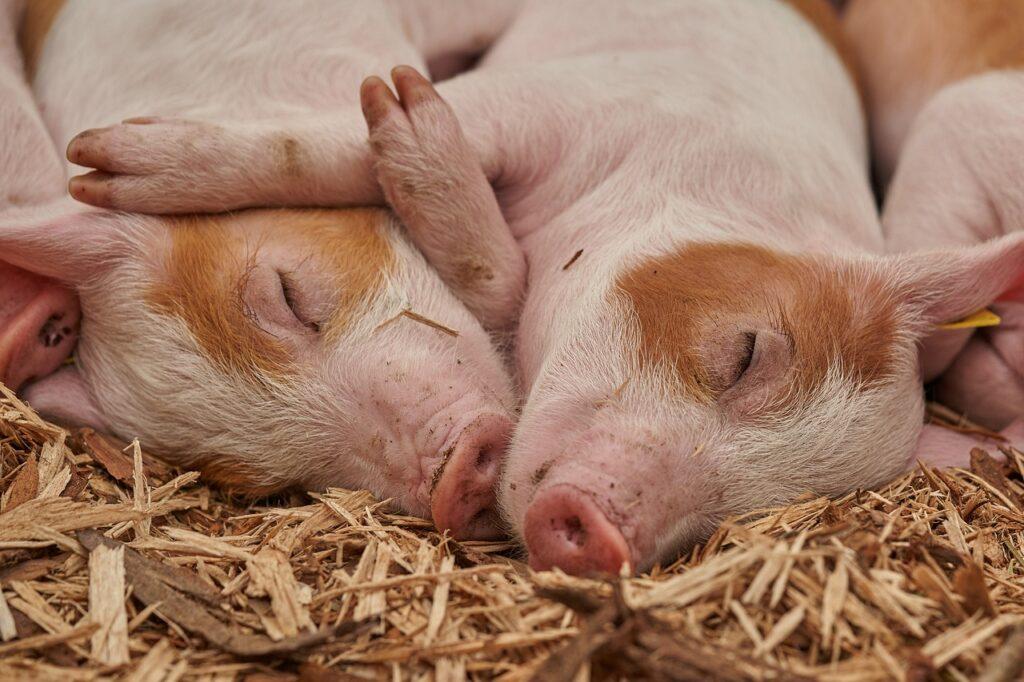
Engaging in a heated exchange with Narada, Indra argued that his current existence brought him happiness. He cherished his bond with his family and felt responsible for their welfare. Relinquishing his hog form would mean abandoning those who depended on him. Indra’s stubbornness left Narada in utter disbelief.
Filled with deep concern for Indra’s delusion, Narada took a drastic step. He severed Indra’s head, symbolically detaching him from the illusory pleasures of the hog’s life. Through this intense action, Narada revealed the stark reality behind Indra’s mistaken perception of bliss.
This story serves as a reminder of the formidable power of Maya, the illusory material energy, which deceives us into believing that our current existence is permanent and more enjoyable than any other. It underscores the need to transcend the allure of worldly pleasures and recognize the ephemeral nature of material life.
In this particular story, death acted as Indra’s savior by severing him from the illusion and bondage of his hog life. Indra had become deeply attached to his existence as a hog, finding contentment and joy in his family, friends, and earthly pleasures. He had forgotten his true identity as the king of heaven and the responsibilities that came with it. However, death intervened as a transformative force. When Narada, out of compassion and concern for Indra, severed his head, it symbolized the end of his attachment to the hog life. This abrupt disruption jolted Indra out of his delusion, breaking the chains that bound him to the earthly realm. By releasing Indra from his hog form, death liberated him from the limitations and illusions of the material world. It severed the grip of maya, the illusory material energy, and reminded Indra of his true purpose and identity. It enabled him to transcend the temporary pleasures and attachments of the physical realm and reconnect with his spiritual essence.
